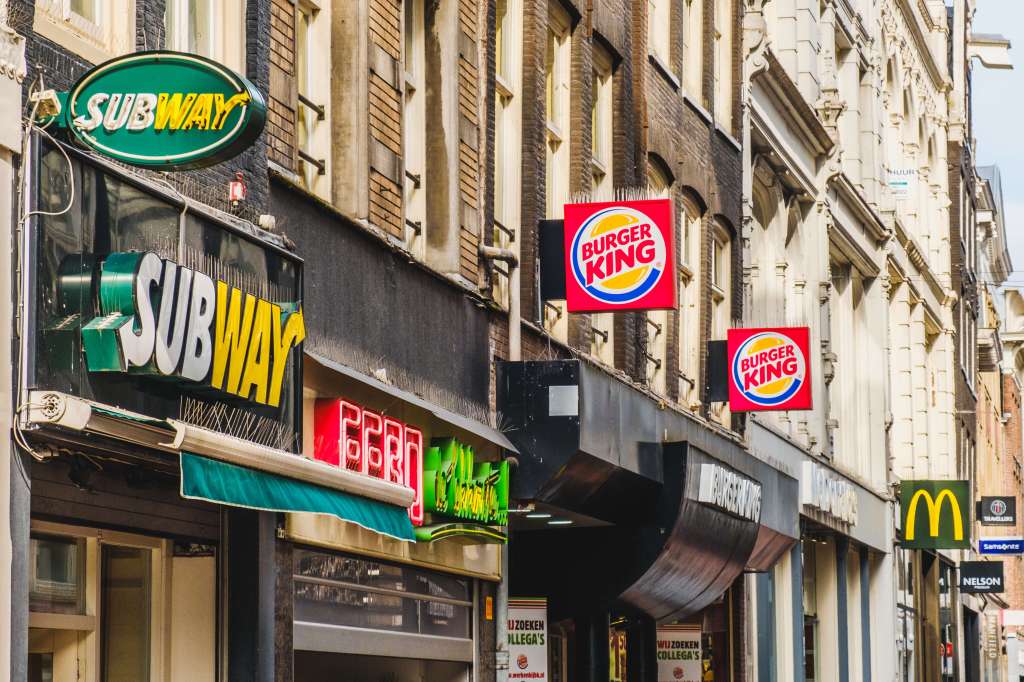Trying to decide whether to buy a franchise or start your own business? While the lower startup costs may be attractive, becoming a franchise owner is something you should research carefully.
Read our guide to understand how franchises work, some of the advantages and disadvantages, and any legal and tax implications of being a franchisee.
What is the meaning of franchisee and franchisor?
Franchising is when an existing business owner (franchisor) sells the rights for a third party (franchisee) to trade under its name.
As a franchisee, you’ll be self-employed and sell products or services using a proven business model, with support and training from the franchisor.
You’ll need to follow the brand and company guidelines and will be responsible for building up a customer base, ordering stock, keeping on top of business admin, and following health and safety guidelines.
How do franchises work?
After signing a franchise agreement and paying an initial start up cost, you’ll run the day-to-day operations of the business and take a share of the revenue.
There are three different types of franchise:
- business format franchise – when a business sells a licence to trade under the brand name with a manual on how to run the business
- product distribution franchise – supplying a product to a distributor who can use the company’s branding, for example fuel at a service station, but with no additional business support
- management franchise – a manager of franchisees looks at business development opportunities rather than the day-to-day running of the business
Franchise opportunities
Franchises are big companies or home-run businesses, from coffee and food franchises to pet care, gyms, and shops. Some of the best franchises in the UK, and worldwide, include McDonalds, Subway and Costa Coffee.

Advantages of a franchise
Some of the advantages of being a franchisee include:
- taking on a proven concept – you’ll get a ready-made business with a proven business model
- access to training – the company selling the franchise will train you on everything from advertising and products to managing stock
- support and guidance – you’ll have ongoing support and access to marketing, branding, and business resources
- less risk – with an existing customer base and proven experience in the market, it can be easier to predict profitability and success – but there’s no guarantee
Disadvantages of a franchise
Disadvantages of being a franchisee include:
- less independence – you have to follow existing models, products and branding, and overall control sits with the franchisor
- success may be limited – there may be a ceiling to how much you can make or how successful the business is
- potential for hidden costs – there’ll be an initial fee to buy the license but there could be ongoing service costs to watch out for
- a challenge if you want to sell – the franchisor has to approve a sale – and who you sell it to – if you no longer want to run the business
- franchisor could go out of business – if the franchisor fails then you have to give up your business
How to start a franchise
Still interested in buying a franchise in the UK? Follow this step-by-step guide to getting started.
1. Research opportunities
The British Franchising Association has plenty of information, including a franchise directory with the latest opportunities as well as handy support guides. Similarly, Which Franchise has advice and a list of franchises out there.
Once you’ve settled on a company, it can be a good idea to speak to other franchisees to find out more about their experience and if it’s worth investing.
2. Write a business plan
A business plan will help you to establish and grow your business. It can also be useful to do a SWOT analysis of your business to identify strengths, weaknesses, opportunities and threats.
3. Seek financial and legal advice
It’s important to get professional advice from an accountant and a solicitor before entering into a franchise agreement or applying for funding. A franchise agreement is a legal document that sets out the length and terms of the agreement, so you want to make sure you’re happy with it.
5. Take a business course
You don’t need experience running a business to buy into a franchise, but you’ll need to get to grips with basic bookkeeping, marketing and customer service. City & Guilds has a wide range of vocational courses and business qualifications if you’re interested in developing your skills.
6. Register as self-employed
Make sure you register as self-employed with HMRC as soon as you’re up and running. As a franchisee, you’ll need to file a Self Assessment and pay your tax bill every year.
7. Consider a business bank account
As a sole trader you’re not legally required to have a business bank account, but you might find it helpful to separate your personal and business banking. Our guide to business bank accounts goes into more detail.
So if you’re looking into buying a franchise, beware of opportunities that seem too good to be true. Do your research, and remember that running a business of any kind is challenging – but it can be highly rewarding too.
Are you considering buying into a franchise? Let us know how you get on in the comments.
Ready to set up your cover?
As one of the UK’s biggest business insurance providers, we specialise in public liability insurance and protect more trades than anybody else. Why not take a look now and build a quick, tailored quote?
